Graham Reid | | 5 min read
Parquet Courts: Stoned and Starving
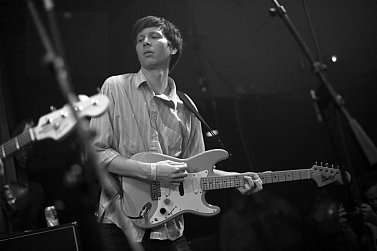
Anyone who has paid even just passing attention to New York-based Parquet Courts will get the connecting points: a guitar band with a keen ear for the past which includes bands like Television, Velvet Underground, Modern Lovers, the Strokes and so on.
But add in some thought-provoking lyrics and songs which slow the tempos right down and you can hear that Parquet Courts aren't just mere followers or copyists, they have – across a series of albums – established their own sound and style.
And there's something else too.
Here's a band which had its origins in Texas – singer-songwriter Andrew Savage was in the oddball electronica-cum-Zappa project Fergus and Geronimo – and in interviews singer-guitarist Austin Brown is more than happy to talk about his most formative influence, which isn't what you expect.
Brown grew up in smalltown Beaumont in East Texas near Houston, and there was a highly distinctive rap sound there, it's main perpetrator being the local legend DJ Screw (who died in 2000).
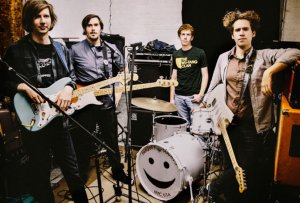 Parquet Courts – who played in New
Zealand at Laneway in 2014 – are making a return visit for a short
tour (dates below, tickets here) so we thought rather than go on about the new
album and such, we'd turn attention – initially at least – to
this unexpected aspect of a guitar band and how, if in any way, it
affected their sounds.
Parquet Courts – who played in New
Zealand at Laneway in 2014 – are making a return visit for a short
tour (dates below, tickets here) so we thought rather than go on about the new
album and such, we'd turn attention – initially at least – to
this unexpected aspect of a guitar band and how, if in any way, it
affected their sounds.
And Brown was more than happy to talk about it, in fact did so uninterrupted for a full 10 minutes before we even got round to talking about his own band.
It's a fascinating story, and he tells it well.
“Houston rap is something you could maybe relate to being in New Zealand,” he says. “It is a very rich musical and cultural scene there, but is isolated. Like, you have an ocean around you as an excuse. But Houston is isolated like that.
“The most popular music in my crappy small town was Houston rap and the style was really defined by DJ Screw and his mix-tapes made at his house where he would take his Technics turntable and pitch them all the way down. The slower the better.
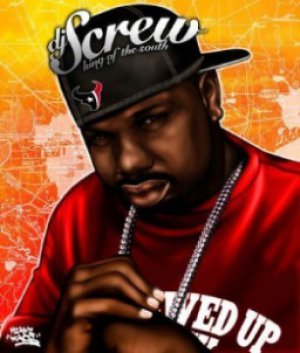 “Then freestylers would rap over
these slow beats and Screw would record them and slow them down even
further then chop them up like a DJ would cut it up. That was his
'Chopped and Screwed' style.
“Then freestylers would rap over
these slow beats and Screw would record them and slow them down even
further then chop them up like a DJ would cut it up. That was his
'Chopped and Screwed' style.
“The idea was that it would replicate the effects of being on weed or drinking codeine cough syrup, which these guys would drink.
“They had their own culture . . . and drugs for that matter, codeine mainly.”
Brown says he learned about the scene in highschool but it wasn't until he left the area of southeast Texas to go to university in the north of the state that he realised how unique it was.
“People outside of my area didn't really know about it, maybe just vaguely. Then when I moved to New York people rarely knew about it. So it was a self-defining music genre for me where I felt was the music of my homeland essentially.”
It was years after Screw's death – from a mix of codeine cough syrup and other drugs – that the Houston rap scene blossomed with artists like Lil Keke and many others, the reissue of his scores of his mix-tapes and emerging record labels.
Brown quickly lists a few of his favourite mix-tapes and also namechecks DJ Michael Watts who followed in Screw's wake.
“They're still going in Houston. We came through Houston on tour last summer and G-Dash the CEO of Swishahouse walks backstage into the Green Room smoking blunt and says, 'What's up Austin, I heard you like Swishahouse so we brought you all this stuff'. He'd brought a box of CDs and t-shirts and weed.
“So I have this weird and quirky knowledge base of this micro-genre of music for whatever reason. And now it's come full circle because they are doing a remix [of a Parquet Courts song] and people from New Zealand ask me about it in an interview,” he laughs..
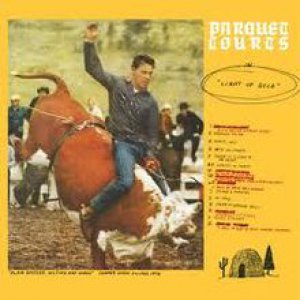 "I just self-identified with it and it
just reminds me of where I grew up when I invested a lot of energy in
enjoying the music and also finding out the backstories of these
characters.”
"I just self-identified with it and it
just reminds me of where I grew up when I invested a lot of energy in
enjoying the music and also finding out the backstories of these
characters.”
Brown says it might be going too far to suggest ti slow-mo rap was an influence on Parquet Courts also doing slower songs, but certainly there was a lyrical influence. He cites the song Master o My Craft which opens their album Light Up Gold.
“That was inspired by rap music. When I was writing it I was thinking of doing something like Subterranean Homesick Blues but maybe like a rap version of that, lyrically.
“That's really how that song came together in a way where a lot of rap is third person posturing and that's very much what Master of My Craft was.”
Since forming in 2010, Parquet Courts have released four studio albums and an EP, and have established a reputation as a strong touring band. But Brown says their rise has been slower than people often give them credit for.
“A lot of people want to say we kinda blew up overnight and kinda came out of nowhere, but we were a band for about two years that no one had really paid any attention to except out friends.
“When we went on our first tour we booked ourselves and the shows were really well attended. And we had the record [American Specialties] that Andrew had pressed on his label Dull Tools, and that first tour was was something we'd been working towards for a while.
“We reached these levels that we never really had ambition for so that was surprising but i'm really thankful for it. I'd not be able to go to New Zealand on vacation much less have my band play there.
“It's been a gradual rise. I wouldn't call it meteoric!”
He says a number of guitar bands are riding a similar wave as they are, but sounds stunned to learn their song Stoned and Starving has had 1.7 million plays on Spotify and Borrowed Time 1.6 million. He laughs when I ask if he thinks they've made any money out of that.
“Spotify is a bunch of crap. It's a huge scam and I hope one that someone out there in a position of power can get it right, but I doubt that knowing how things go, especially in the music industry.”
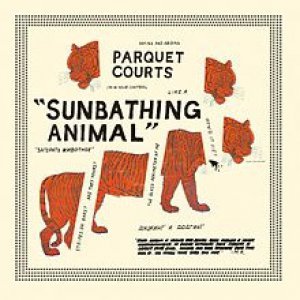 Unusually for a 21 century band,
Parquet Courts have limited engagement with all the new technology
available to them and prefer to do thing in the old way. They play,
record and Andrew Savage does their album art.
Unusually for a 21 century band,
Parquet Courts have limited engagement with all the new technology
available to them and prefer to do thing in the old way. They play,
record and Andrew Savage does their album art.
“He takes a lot of care and puts a lot of thought into it. And that's important, because that's how a band is experienced, through their visual art and their music. It's not really what you are saying on Twitter, it's about what you are producing and that's where our focus is. People in the know get it.
“We don't have a Facebook page or Twitter or anything like that. From the beginning it always seemed that was a periphery element to being in a band. It was almost like bands needed to have an on-line presence to be considered an actual band.
“In reality you can put out a record and play shows and the music will promote itself. Bands existed for decades before Facebook ever did, that idea that it was there and you needed it didn't seem like logic.
“It's not. And you don't.”
PARQUET COURTS NEW ZEALAND TOUR
March 9 - Auckland - King's Arms
March 10 - Wellington - San Fran Bathhouse
March 11 - Christchurch - Dux Live
March 12 - Dunedin - Chick's Hotel

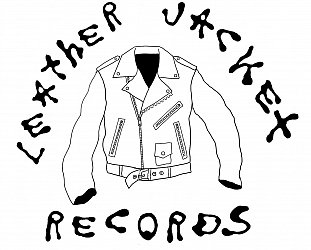
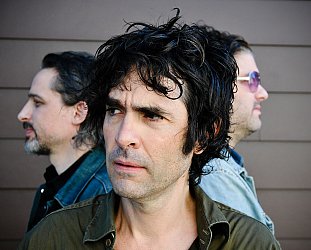
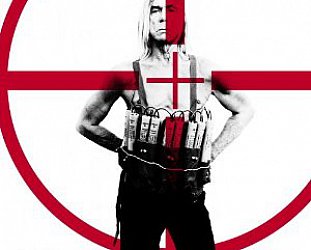
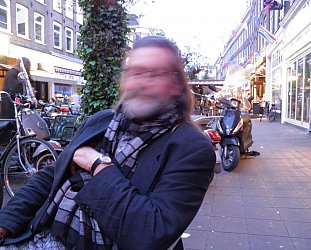
post a comment